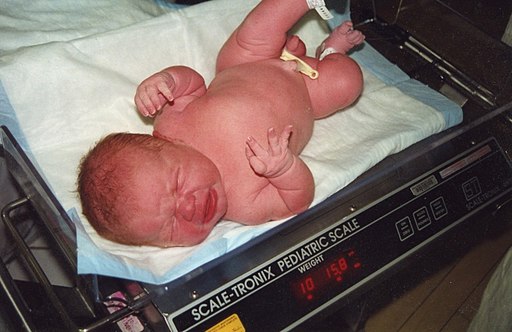Diabetes in a mother can either occur before the pregnancy – pregestational diabetes or during the pregnancy – gestational diabetes. High blood sugar level in mother is not just harmful to her but also to the baby developing in her womb. HAZARDS DURING INTRAUTERINE LIFE 1. Congenital Anomalies or Birth…
Tag: Endocrine system
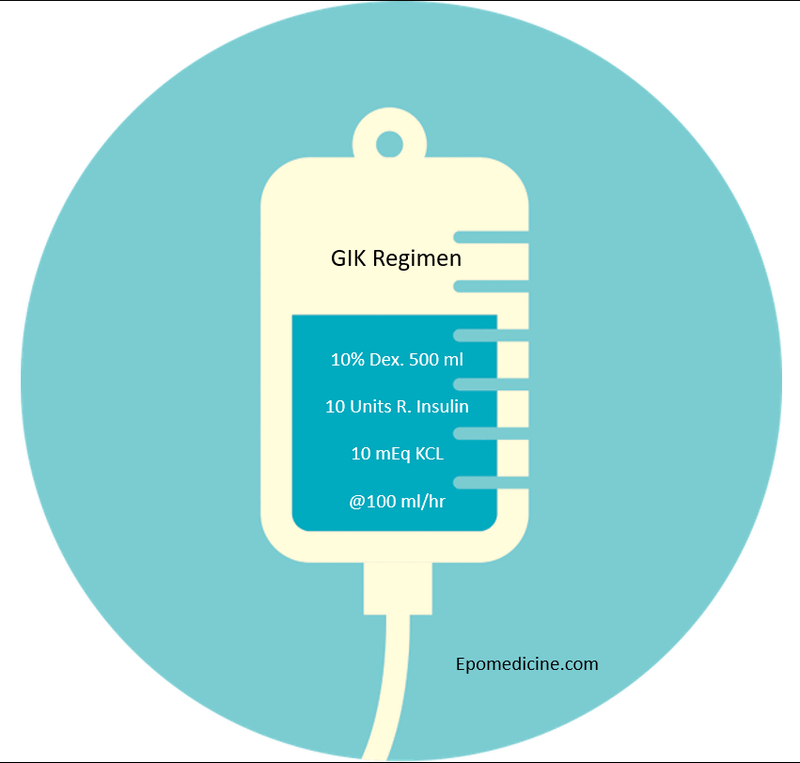
GIK Regimen – Rule of Ten
Interchangably used as: GIK or GKI regimen. GKI stands for Glucose, Potassium and Insulin. This simple and effective combined insulin delivery method has gained wide acceptance in perioperative management of diabetic patients who would require Nil Per Oral (NPO) status. Recently, this composition has also been used for management of…
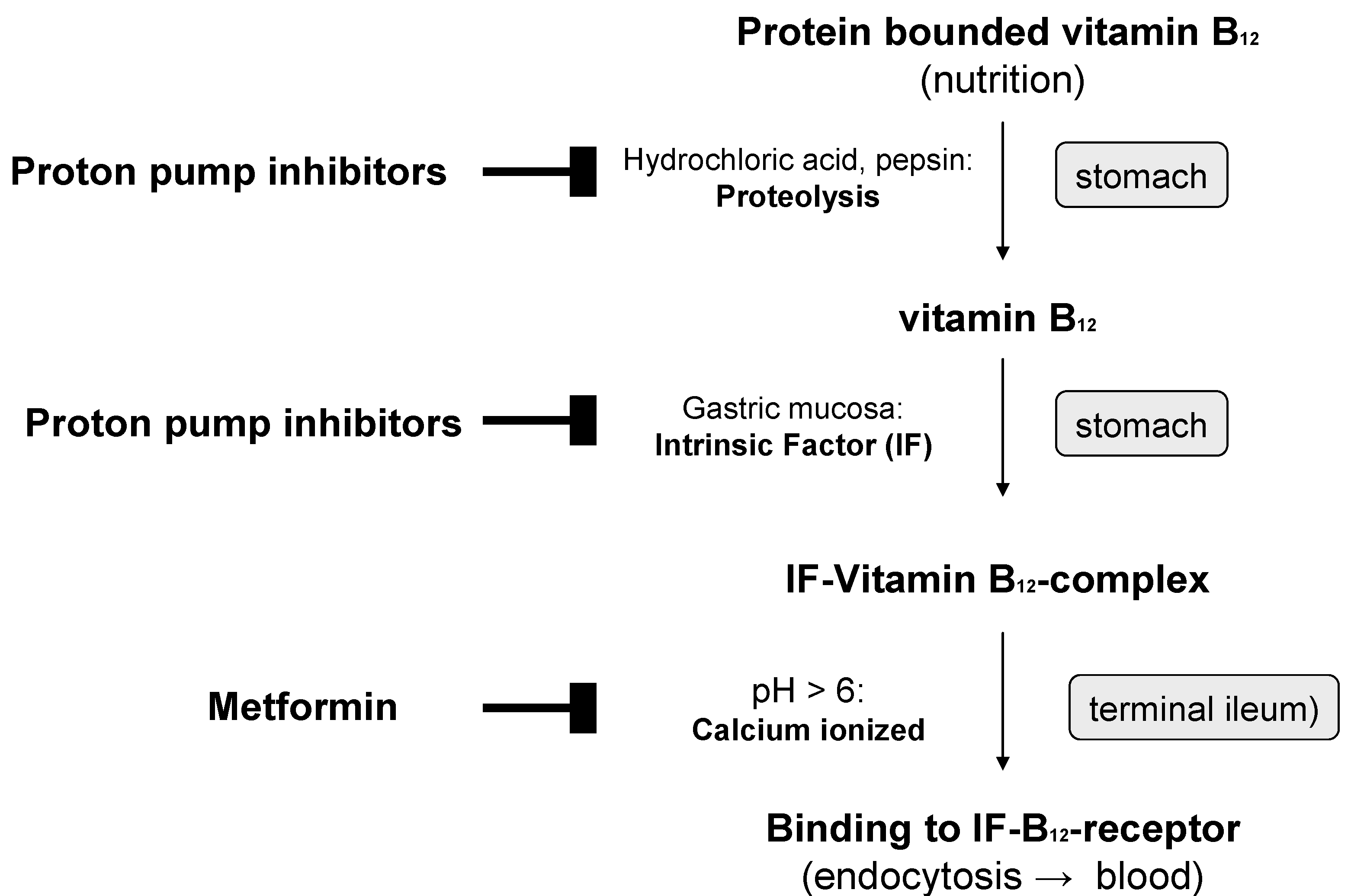
How Metformin Causes Vitamin B12 deficiency?
Multiple studies have shown that metformin reduces serum B12 levels in 10–30% of patients. The effect increases with the duration of the therapy. Decrease in vitamin B12 absorption and levels following metformin use typically starts as early as the 4th month. Mechanisms of Vitamin B12 deficiency with Metformin Use: It…
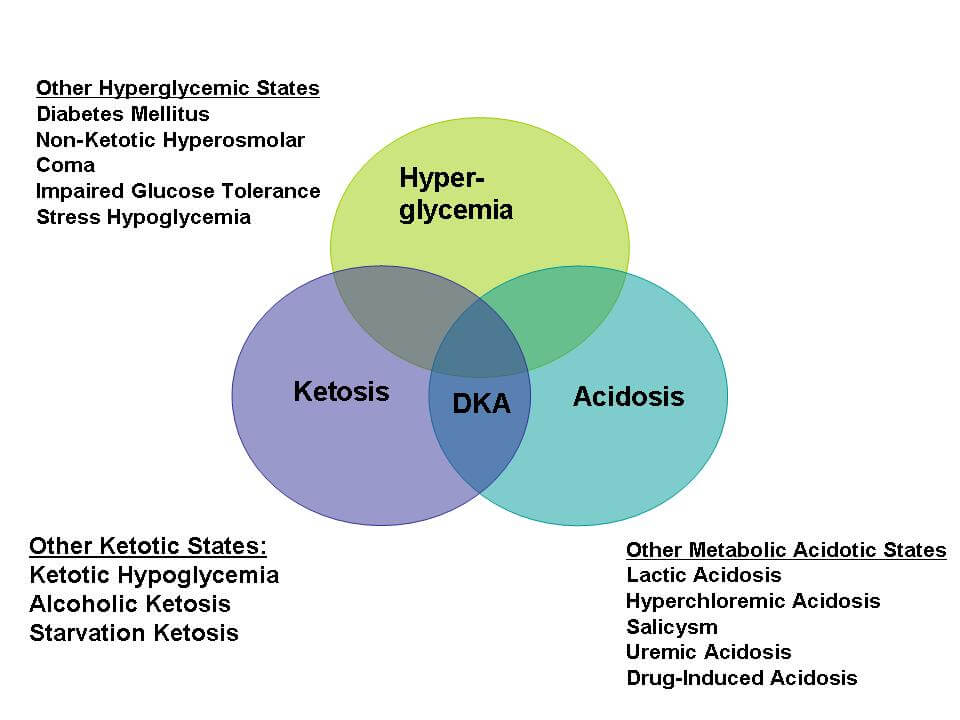
DKA : Mnemonic Approach and Clinical Aspects
Diagnostic criteria for DKA a. Plasma glucose (mg/dl): >250 b. Arterial pH: 7.25 to 7.3: mild DKA 7 to 7.24: moderate DKA <7: severe DKA c. Serum bicarbonate (mEq/L): 15 to 18: mild DKA 10 to 15: moderate DKA <10: severe DKA d. Urine and serum ketones (nitroprusside reaction): Positive…
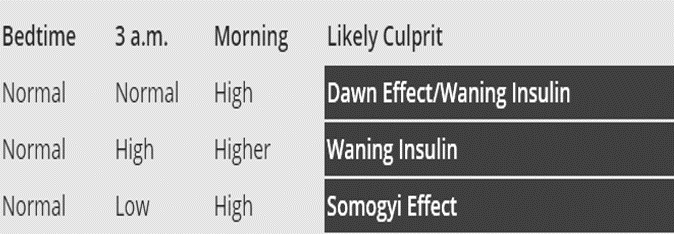
Somogyi effect and Dawn Phenomenon – Mnemonic
Both Somogyi effect and Dawn phenomenon are the cause of MORNING FASTING HYPERGLYCEMIA. Mnemonic: Somogyi = So Much InsulinDawn = Down Insulin a. Somogyi effect: Excess exogenous insulin → Middle night hypoglycemia → Release of counter-regulatory hormones → Rebound morning hyperglycemia b. Dawn effect: Normal release of morning hormones (growth…
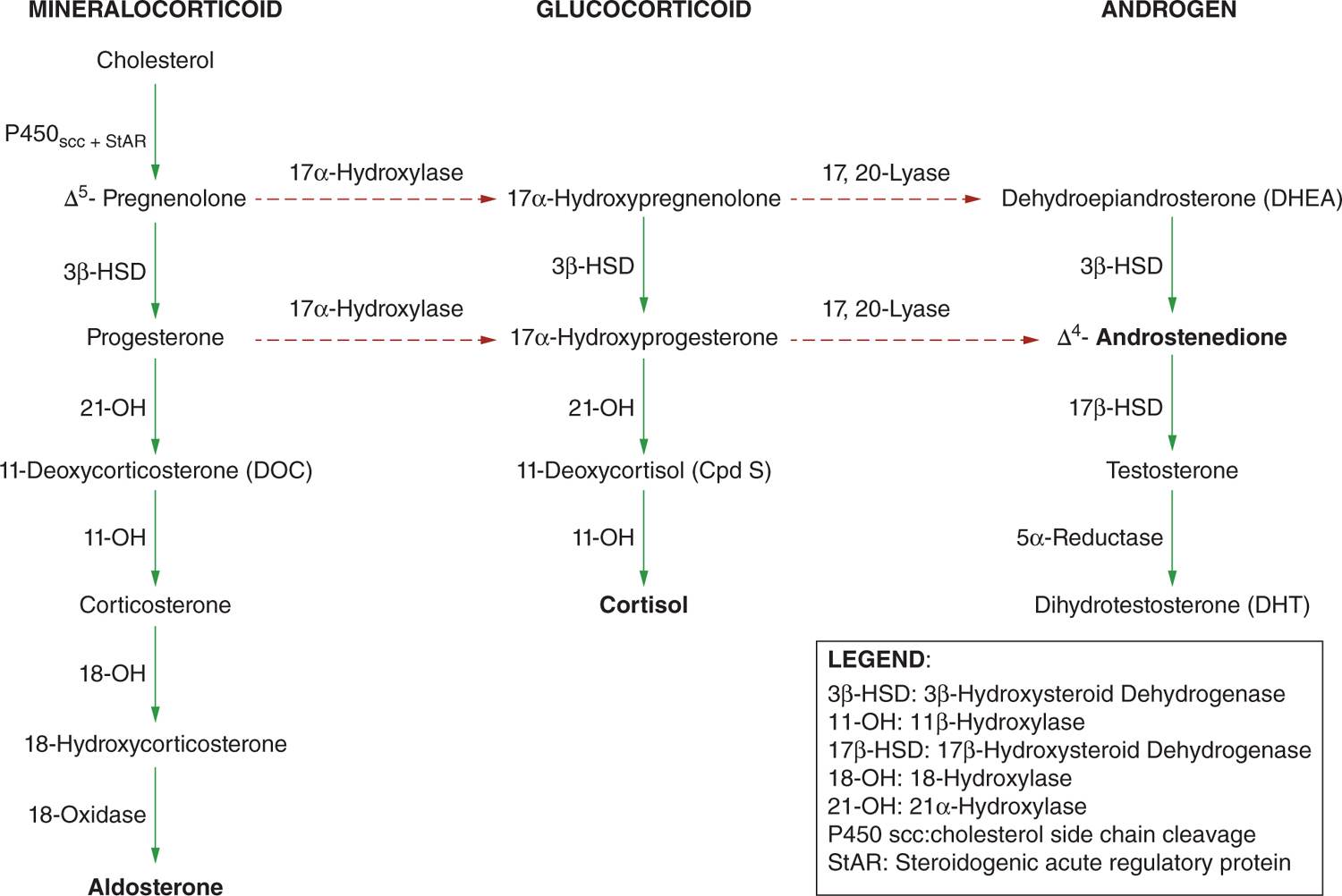
Congenital Adrenal Hyperplasia Basics : Explained with Mnemonics
Adrenal cortex synthesize steroids. Mnemonic: GFR – Salt, Sugar, Sex Zona gomerulosa: Salt (Aldosterone) Zona fasciculata: Sugar (Cortisol) Zona reticulosa: Sex (Testosterone) Congenital adrenal hyperplasia (CAH) Deficiency of 3 different enzymes can cause Congenital Adrenal Hyperplasia. Mnemonic: Remember the mnemonic GFR, first layer of cortex synthesizes aldosterone and the last layer…
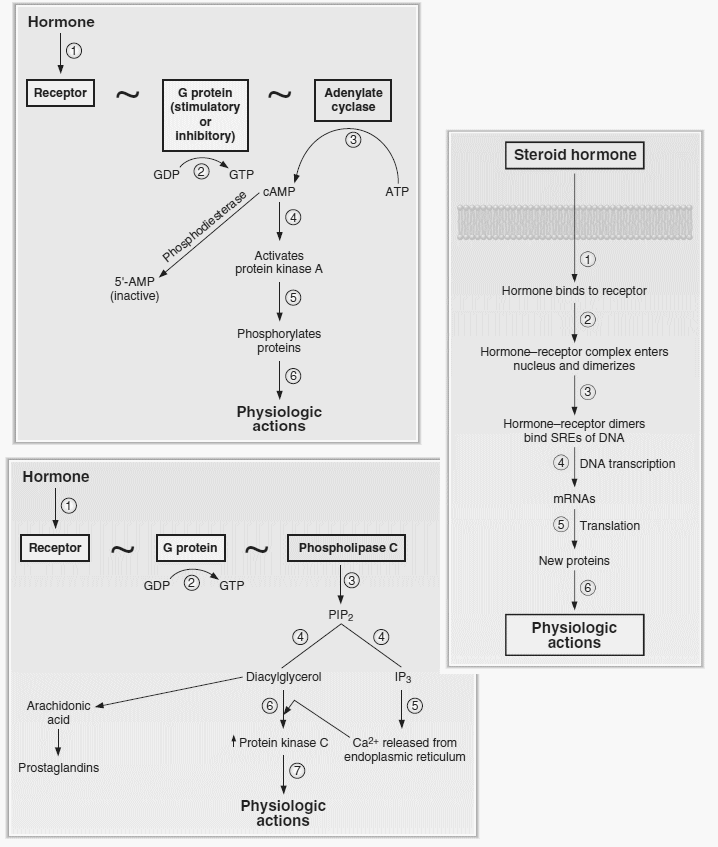
Signaling Pathways of Hormones : Mnemonic
cAMP Mechanism Mnemonic: FLAT CAMP B-HCGS Remember “B-FLAT” mnemonic for hormones secreted by basophilic cells of the anterior pituitary. This is the same “FLAT” here. Also CAMP matches cAMP. Beta-HCG works by cAMP mechanism. All 2 except Beta 1 and 5-HT1 So, this is an easy mnemonic to remember. FSH…

Short History of HGH
Short History of HGH HGH is becoming more and more popular among the sportsmen and bodybuilders these days. However, many people still don’t have a clue about what HGH really is. The time has come to answer all the possible questions on where did HGH came from, how it developed,…
